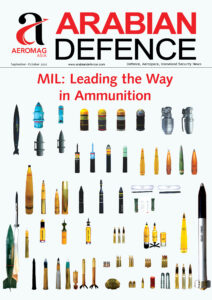The Ministry of Defence (MoD) signed a Memorandum of Understanding (MoU) to establish three state-of-the-art testing facilities under the Uttar Pradesh Defence Industrial Corridor (UPDIC) on July 30. As per the MoU, a Mechanical & Material (M&M) testing facility will be set up in Lucknow, while Kanpur will host two facilities—one for Unmanned Aerial Systems (UAS) and another for Communications. The agreement was formalized in New Delhi between senior officials from the MoD and the Uttar Pradesh Expressways Industrial Development Authority (UPEIDA).
This initiative falls under the Defence Testing Infrastructure Scheme (DTIS), which was inaugurated by Defence Minister Shri Rajnath Singh in May 2020. With an allocated budget of Rs 400 crore, DTIS aims to establish testing facilities in collaboration with private industry and Central/State Governments, thereby promoting indigenous defence production, reducing imports, and enhancing self-reliance.
To boost the defence and aerospace sectors within the Defence Industrial Corridors, seven testing facilities have been approved—four in Tamil Nadu and three in Uttar Pradesh. The MoU for establishing three testing facilities in Uttar Pradesh Defence Industrial Corridor (UPDIC) was signed today. Previously, on July 2, 2024, an agreement was reached to set up three facilities in Tamil Nadu Defence Industrial Corridor, focusing on Unmanned Aerial Systems (UAS), Electronic Warfare, and Electro-Optics, all based in Chennai.
Under DTIS, up to 75% of the funding is provided as a ‘Grant-in-Aid’ by the government, with the remaining 25% contributed by Special Purpose Vehicles (SPVs), which include Indian private sector entities and State/Central Governments.
For the M&M facility, MIDHANI will lead as the SPV member, supported by private sector consortium members. Hindustan Aeronautics Limited and Bharat Electronics Limited will head the SPVs for the UAS and Communications facilities, respectively.
Upon completion, these facilities will offer advanced testing equipment and services to both government and private entities. Revenue generated will be reinvested to further enhance testing capabilities and processes, thereby contributing to greater self-reliance in defence.











